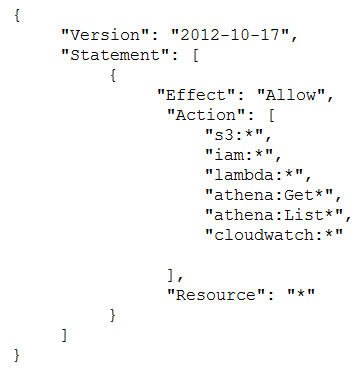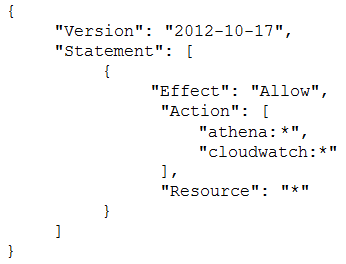

A Security Engineer has created an Amazon CloudWatch event that invokes an AWS Lambda function daily. The Lambda function runs an Amazon Athena query that checks AWS CloudTrail logs in Amazon S3 to detect whether any IAM user accounts or credentials have been created in the past 30 days. The results of the
Athena query are created in the same S3 bucket. The Engineer runs a test execution of the Lambda function via the AWS Console, and the function runs successfully.
After several minutes, the Engineer finds that his Athena query has failed with the error message: `Insufficient Permissions`. The IAM permissions of the Security
Engineer and the Lambda function are shown below:
Security Engineer -
Lambda function execution role -
What is causing the error?
sensor
Highly Voted 3 years, 11 months agoChauPhan
3 years, 9 months agofreddyman
3 years, 10 months agowahlbergusa
3 years, 9 months agopal40sg
1 year, 11 months agoSitender
Highly Voted 3 years, 10 months agoAamee
Most Recent 1 year, 8 months agoanhtu133
1 year, 8 months agoBenah
1 year, 11 months agoShenannigan
1 year, 11 months agopk0619
2 years, 1 month agoGreen53
2 years, 1 month agoKarthikeyanTK
2 years, 2 months agoKarthikeyanTK
2 years, 2 months agoRobert0
2 years, 2 months agoITGURU51
2 years, 3 months agoKitman
2 years, 3 months agomatrpro
2 years, 3 months agokujin
2 years, 4 months agoblanco750
2 years, 5 months agoroguecloud
2 years, 6 months ago